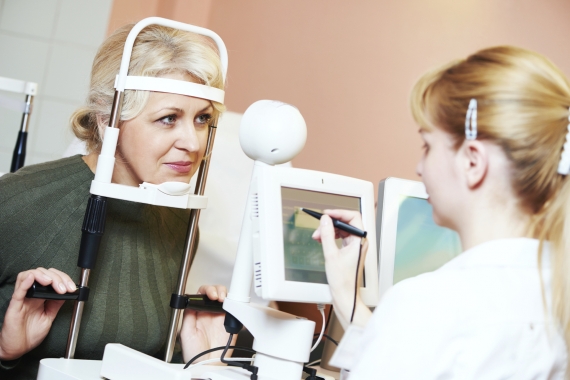Glaucoma Surgery
If you think you may need glaucoma surgery, Elmquist Eye Group can help. Our dedicated team at will assist you throughout your treatment, informing and educating you about your treatment options while we do our best to preserve your vision.
Over 30-million Americans are affected by glaucoma, cataracts, diabetic retinopathy, macular generation, and other eye health conditions, and everyone from children to seniors in Cape Coral and Fort Myers have been coming to Elmquist Eye Group for nearly 25 years.
The skilled Elmquist team includes Dr. Trevor Elmquist, who is a board certified ophthalmologist and surgeon and one of America’s Top Doctors in ophthalmology, his partner, Dr. Kate Wagner, and his associate, Dr. Nina Burt. Drs. Wagner and Burt are board certified optometrists who provide a full spectrum of eye care services.
About Glaucoma
 Glaucoma is sometimes called the “silent thief of sight” because it can cause blindness with little or no warning. The disease is associated with elevated intraocular pressure which can lead to optic nerve damage and loss of vision.
Glaucoma is sometimes called the “silent thief of sight” because it can cause blindness with little or no warning. The disease is associated with elevated intraocular pressure which can lead to optic nerve damage and loss of vision.
Although increased eye pressure puts you at greater risk for glaucoma, it does not mean that you have the disease. Glaucoma affects the optic nerve located at the back of the eye. You have glaucoma only if the optic nerve is damaged. Many people with high eye pressure never develop the disease and some people develop glaucoma even when their eye pressure is normal.
Early in open-angle glaucoma, the most common form of the disease, glaucoma affects the peripheral (or side) vision, and many people don’t notice the changes. As the disease progresses, central vision is often affected. Unfortunately, significant damage can be done to the optic nerve before the disease is discovered.
People at risk for glaucoma include:
- Anyone over the age of 60
- African-Americans over age 40
- Family history of glaucoma
- Extremely nearsighted individuals
- Individuals with thin corneas
- History of diabetes
- History of high blood pressure
- History of elevated intraocular pressure
- History of steroid medication usage
Regular glaucoma check-ups include a dilated eye exam and tonometry, which measures the pressure within your eye. Other tests may include a visual field test, optic nerve analysis through use of a scanning laser, an assessment of the drainage structure of the eye, optic nerve photos, and a corneal thickness measurement. Your eye doctor will analyze the test results to determine if you have glaucoma, its severity, and the best way to treat it before it damages your vision.
About Glaucoma Surgery
There are several types of laser surgery that can be very effective in treating glaucoma. For open-angle glaucoma, the most common procedure is called laser trabeculoplasty. For closed-angle glaucoma, there is a different type of laser surgery called peripheral iridotomy.
In both surgeries, the doctor uses a laser beam to make small changes in the eye’s drainage system to allow fluid to flow normally and to lower the intraocular pressure that is causing optic nerve damage.
If you are not a candidate for laser surgery, your ophthalmologist may recommend a conventional type of surgery called a trabeculectomy. This outpatient procedure can be used to treat both open-angle and closed-angle glaucoma.
We encourage you to visit Elmquist Eye Group for more information about glaucoma surgery. Our specialists will go over the risks and benefits of each procedure and help determine which treatment option is best suited for you. Get in touch with us today at (239) 936-2020.
